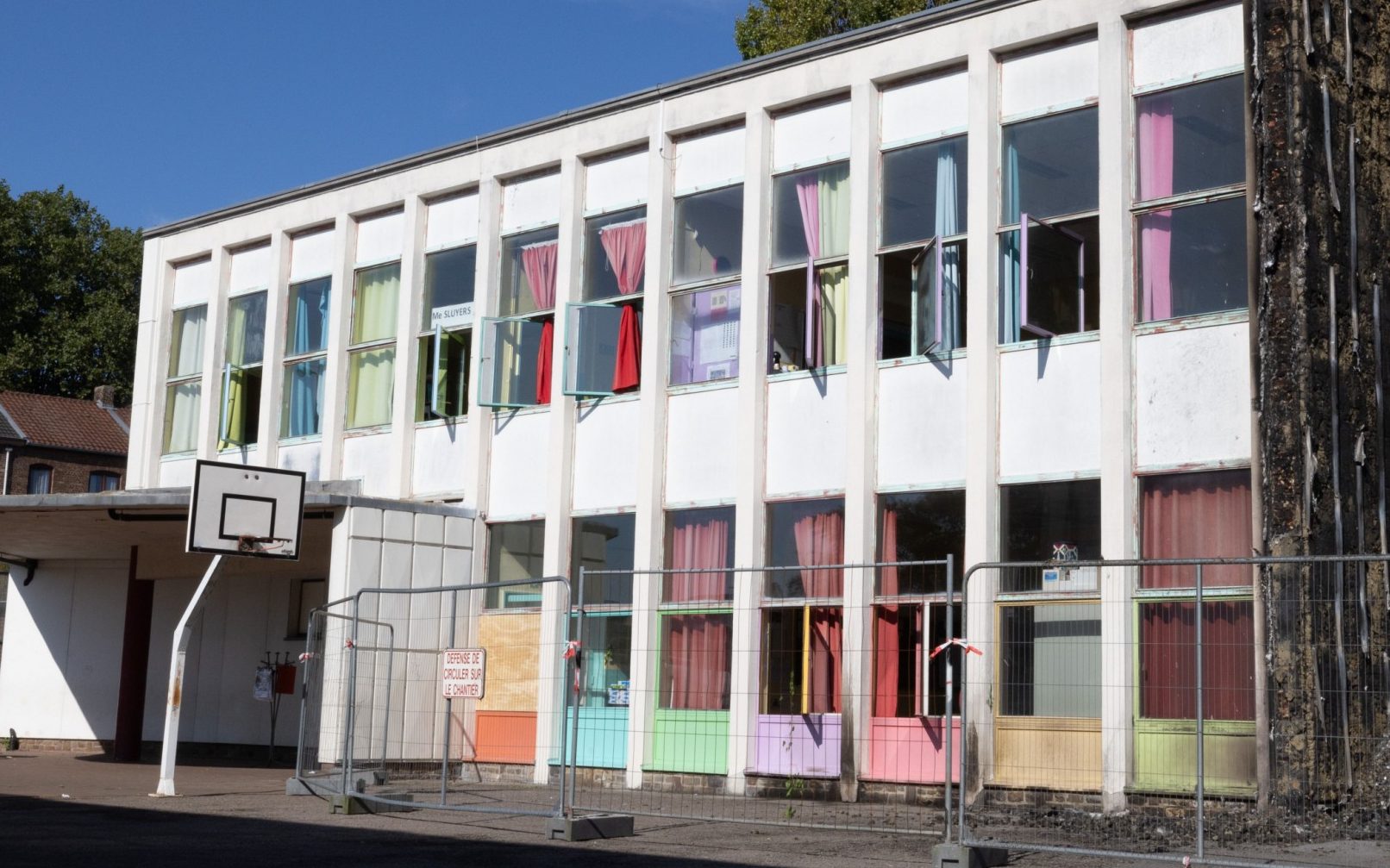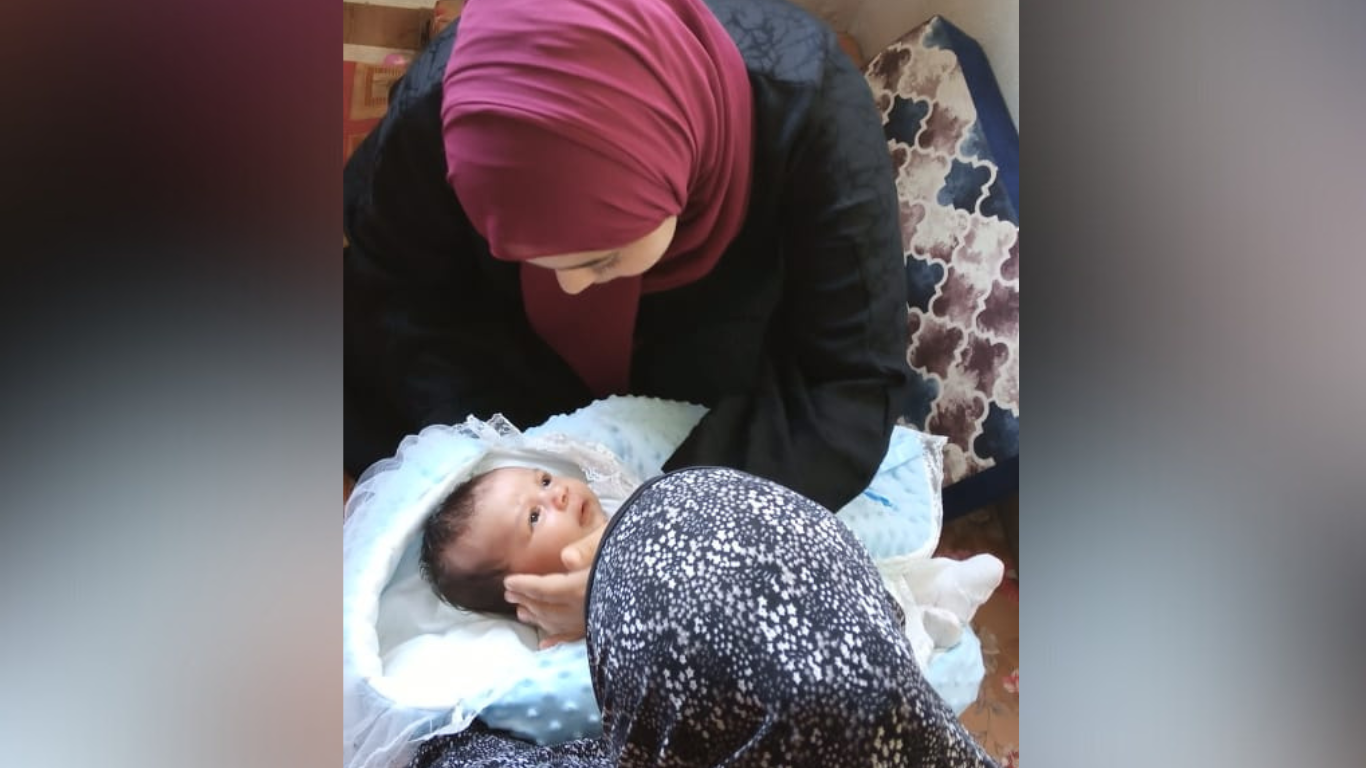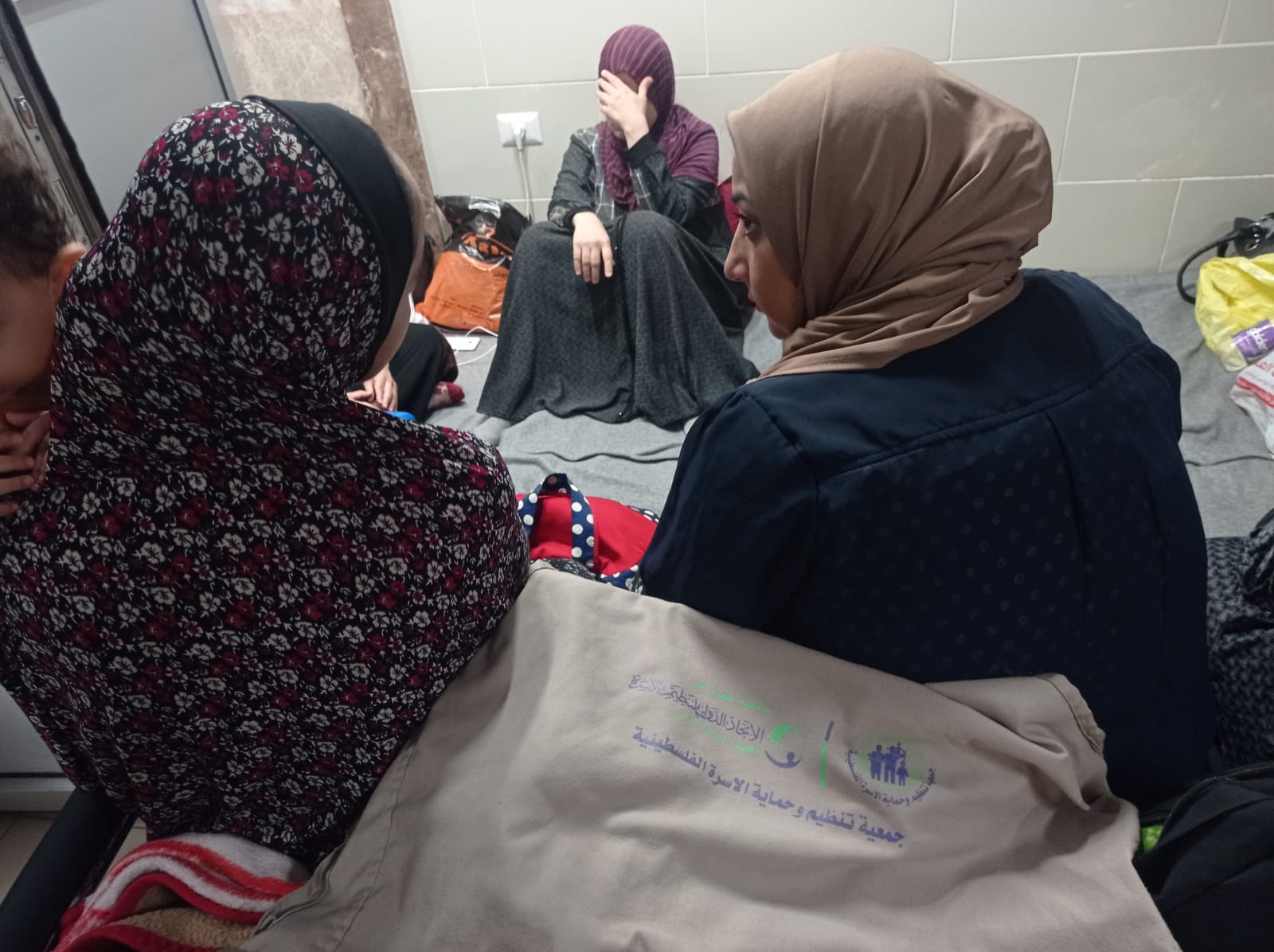Latest press releases
A selection of stories from across the Federation

Human rights victory for intersex persons
Geneva, 4 April - The International Planned Parenthood Federation celebrates the historic adoption of the first ever United Nations resolution on the human rights of intersex persons! This landmark resolution advances efforts to combat the unique human rights violations that intersex persons face and the obligation of states to respect, protect and fulfill the human rights of all people, without discrimination of any kind.
For media enquiries


| 21 September 2023
IPPF Condemns the Arson Attacks on Schools Delivering Sex Education in Belgium
IPPF condemns the multiple school arsons across the French-speaking Wallonia region in Belgium over the past week, which have been connected to public protests against the compulsory “education in relationships, affective and sexual life” (EVRAS) program. These targeted attacks are evidence of a growing movement opposed to Comprehensive Sexuality Education (CSE) curricula, and the duty of states to support and protect children in their sexual development. IPPF is deeply concerned that a small cadre of those with extremist views are targeting schools with violence, which serve as vital safe spaces for children and young people to become educated, empowered citizens. In the face of global misinformation campaigns and attempts to silence the organizations and institutions providing high quality comprehensive sexuality education, IPPF affirms that these programs empower children and young people to protect their health and well-being and support them in developing healthy and positive relationships throughout their lives. Dr. Alvaro Bermejo, IPPF Director General said: “The violent attacks on schools in Belgium are proof of how anti-rights campaigners are multiplying around the world and fuelling divisions by spreading false or misleading information about existing education curricula. We know from decades of research and our own programmatic experience in this area that comprehensive sexuality education helps children and young people to understand and enjoy their sexuality, take responsibility for their own sexual and reproductive health and rights and respect other people’s. We stand with the educators in Belgium who are delivering on a sex education curriculum that promotes children and young people’s rights.” Research shows that parents and young people agree that sexuality education should be offered in schools, and that parents are willing to join these programs, particularly as they help their children to navigate relationships and sexuality amid the complex challenges of the digital era. Many governments around the world, including Belgium, are making sexuality education programs a national priority to protect all children and young people from harm. IPPF stands with the schools and educators delivering this vital education in Belgium and around the world, and we remain committed to providing children and young people with the knowledge to protect and promote their safety, health and wellbeing. For media inquiries, contact [email protected] Banner image: Shutterstock

| 19 April 2023
Statement on the Outcome of the 56th Session on the Commission on Population and Development
The International Planned Parenthood Federation expresses its disappointment that the fifty-sixth session of the Commission on Population and Development (CPD), held from 10-14 April 2023 at UN headquarters in New York, did not result in a resolution on the theme of Population, Education and Sustainable Development. The Chair’s draft resolution for consideration on 14th April was the result of many weeks of intergovernmental discussions and represented a compromise to address the positions of all delegations. It was a balanced text based on previously agreed language and included critical elements related to this year’s priority theme, including ensuring a comprehensive response to the learning crises the world is facing today. Key issues including the need for gender-responsive policy development, a focus on marginalized communities, youth and adolescents, sexual and reproductive health and reproductive rights were consensually included in the draft resolution, demonstrating global consensus on these issues. However, consensus on the document was unfortunately broken by a small minority of Member States who were unable to accept language pertaining to comprehensive education on human sexuality, which was language adopted at this very Commission in 2014, and which comes from the 1994 ICPD Programme of Action itself. It is disappointing that these few Member States found it more important to block agreed language than to adopt meaningful advancements in the area of education. The ramifications of the failure to adopt this resolution will have an impact on billions of young people, adolescents and girls worldwide who have experienced the largest disruption of education systems in history, where more than 90 % of the world’s children have had their education interrupted by COVID-19 and 263 million children and young people are still out of school (1 in 5). IPPF is, however, encouraged that the negotiations on this resolution, which took place over several weeks, demonstrated the on-going commitment of Member States to the the ICPD Programme of Action (PoA), the key actions for its further implementation, the declaration on the occasion of the twenty-fifth anniversary of the International Conference on Population and Development, and resolutions and work of the Commission on Population and Development. We also welcome the plenary program of the 56th session of the CPD, which featured strong data on comprehensive sexuality education from UN agencies as evidence of its beneficial impact on children, adolescents and young people. In addition (or equally important), the experience of national programs and the passionate voices of young people reaffirmed that comprehensive sexuality education is an essential tool to empower young people and adolescents to make informed choices about their bodies, lives and futures. With a view towards the 30th anniversary of the ICPD PoA in 2024, we appreciate the commitment of Member States to continue working to deliver on the Programme of Action of the International Conference on Population and Development (ICPD) and look forward to engaging in the national, regional, and global processes of ICPD+30, culminating in next year’s 57th session of the Commission on Population and Development.

| 10 November 2022
Sexual and reproductive justice to deliver the Nairobi commitments
Today, the International Planned Parenthood Federation (IPPF) is helping launch the second report of the High-Level Commission on the Nairobi Summit, also known as the International Conference on Population and Development 25 (ICPD 25). The Commission is an independent advisory board comprised of 26 members from different sectors tasked with monitoring progress on the ICPD Programme of Action and Nairobi Summit Commitments. The programme of action contains commitments from 179 countries to put the rights, needs and aspirations of individual human beings at the centre of sustainable development, part of which includes achieving universal access to sexual and reproductive health for all. The report - ‘Sexual and reproductive justice as the vehicle to deliver the Nairobi Summit commitments’ - highlights sexual and reproductive justice as the key to the realization of the Nairobi Summit commitments. Sexual and reproductive justice is a universal concept. It includes the right to have or not have children, the right to parent one’s children in safe and sustainable environments, and the right to sexual autonomy and gender freedom. Monitoring the implementation of life-saving sexual and reproductive health and gender-responsive services is crucial to ensure accountability and human rights for all. However, while some progress has been made, many barriers persist, and millions worldwide still do not realize their sexual and reproductive rights. Progress on Nairobi Summit Commitments: Numerous country commitments made at the Nairobi Summit align with a sexual and reproductive justice framework. They pay explicit attention to marginalized and vulnerable populations, notably people with disabilities, refugees, migrants (particularly migrant women), young people and older persons. Indigenous peoples, people of African descent and other ethnic minority groups have received less attention. A slew of new reproductive rights legislation followed the Nairobi Summit, suggesting a basis for a sexual and reproductive justice framework. The high number of commitments prioritizing sexual and gender-based violence offers a powerful entry point for promoting sexual and reproductive justice. On the Summit’s Global Commitments, some improvement is evident in meeting unmet need for family planning. But no region has registered positive movement towards zero preventable maternal deaths. Greater access to family planning has yet to translate into better maternal health outcomes. There is some progress in offering comprehensive and age-responsive information and education on sexuality and reproduction and adolescent-friendly, comprehensive, quality and timely services. Certain regions and countries have advanced in providing timely, quality and disaggregated data. More must be done, but this creates opportunities for ensuring that data capture intersecting challenges and are used to inform laws, policies and programmes. Domestic and international finance is critical to sexual and reproductive justice but persistently lags commitments. More than 4 billion people globally will lack access to at least one key sexual and reproductive health service during their lives Dr Alvaro Bermejo, Director-General for the International Planned Parenthood Federation, said: “Three years on from the Nairobi Summit and while we have seen some progress in sexual and reproductive health and rights across countries like Colombia, Mexico and Thailand, globally, we remain far from reaching the commitments made at ICPD 25 - that all women and girls will have autonomy over their bodies and lives through universal access to sexual and reproductive health and rights (SRHR). “With the devasting loss of abortion rights across the U.S having a disproportionate impact on poor women and women of colour, ongoing humanitarian crises across countries like Afghanistan, Ethiopia and Ukraine creating unliveable, unsafe and unsustainable conditions for millions, and the loss of billions of dollars of funding severely affecting access to sexual and reproductive health care for those most in need, 2022 continues to demonstrate the critical need to champion sexual and reproductive justice for all - recognizing the importance of intersecting oppressions on people’s ability to make decisions about their bodies, lives and futures. “At the International Planned Parenthood Federation (IPPF), we remain dedicated to helping countries deliver on the Nairobi commitments as we approach ICPD 30. Using our unique position as a locally-owned, globally connected organization, we will continue to work in solidarity with donors, governments, partners and communities to ensure that everyone, everywhere, can access high-quality SRH care, especially those who are most often excluded, locked out and left behind. “IPPF also urges governments to heed the Commission’s call to action and do more to achieve sexual and reproductive justice. This means tackling the economic, social and legal barriers that prevent its implementation, more financial investment, including in universal healthcare, increased solidarity with partners and the sense of urgency needed to get the job done. The lives and futures of millions depend on it.” For media enquiries, please contact Karmen Ivey on [email protected] or [email protected] About the International Planned Parenthood Federation The International Planned Parenthood Federation (IPPF) is a global service provider and advocate of sexual and reproductive health and rights for all. For 70 years, IPPF, through its 108 Member Associations and seven partners, has delivered high-quality sexual and reproductive healthcare and helped advance sexual rights, especially for people with intersectional and diverse needs that are currently unmet. Our Member Associations and partners are independent organizations that are locally owned, which means the support and care they provide is informed by local expertise and context. We advocate for a world where people are provided with the information they need to make informed decisions about their sexual health and bodies. We stand up and fight for sexual and reproductive rights and against those who seek to deny people their human right to bodily autonomy and freedom. We deliver care that is rooted in rights, respect, and dignity - no matter what.















